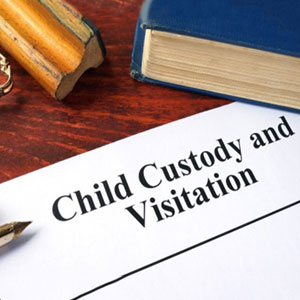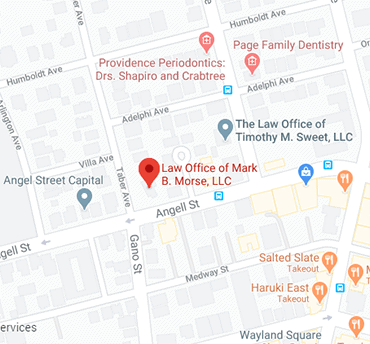Divorcing With Kids – Rhode Island Child Custody And Child Support
 No divorce is easy, but there is no doubt that divorcing with children is far more complicated. The stakes are higher, as there are other lives that will be affected. But even putting aside, for a moment, the emotional and psychological impacts of divorce, there are far more legal aspects and consequences you will need to deal with. Especially when it comes to money.
No divorce is easy, but there is no doubt that divorcing with children is far more complicated. The stakes are higher, as there are other lives that will be affected. But even putting aside, for a moment, the emotional and psychological impacts of divorce, there are far more legal aspects and consequences you will need to deal with. Especially when it comes to money.
This article and the advice of your divorce attorney are a good place to start when figuring out what your Rhode Island divorce will look like and require when children are involved. This includes:
- How custody is determined (and at what age your child has a say in it).
- How child support is calculated and how long it will last.
- How child support and custody can be modified later down the line.
What Is Child Custody, And What Forms Can It Take In Rhode Island?
When it comes to children in divorce, the primary concern of most parents is usually custody. It is also, often, the decision that will have the most impact on the children involved. Custody means who the child will live with (physical custody) and who will make the important decisions in their life (legal custody).
Custody can be joint: shared by both parents through co-parenting or alternating physical custody. It can also be individual, as one parent takes sole custody and the other merely retains visitation rights. The end result will depend on what the parents want and what the court considers to be in the best interest of the child.
How Is Custody Determined In A Rhode Island Divorce?
In Rhode Island, custody is always determined by what is in the best interest of the child by the court. However, if both parents can agree to a specific arrangement, the court will almost always honor that.
If there is a dispute, however, things get more complicated, and the court will have to decide what is in the child’s best interest. While the court will always try to have the child be able to foster a relationship with both parents when choosing where the child should be, they may have to adjust that based on the circumstances, including, in some instances, the opinion of the child.
Can A Child Have Input On Who He Or She Will Live With After The Divorce?
Among the many factors the court will have to take into account when determining the ideal custody arrangement, they will consider a child’s conduct with each parent and their relationship with them.
The older the child will be, the more influence they will have, though the court will often appoint a Guardian Ad Litem to represent the interest of the child. This neutral third party acts as a legal guardian of the child’s interest during the divorce and may even investigate or report on the family situation at home.
The same decision and procedures may also be needed if one or both of the parents or the child seek to modify the child custody situation later on.
When Can A Child Custody Agreement Be Modified In Rhode Island?
There is no doubt that life sometimes brings unexpected or significant changes, and sometimes, these will also impact your existing child custody agreement. Luckily, these are not set in stone and can be subject to modification depending on what is in the best interest of the child.
Even if a court were to order custody to one or the other parent today, if there is a substantial change in circumstances three months from now, they could reconsider. Ultimately, it will be up to you and your attorney to bring forward any new circumstances or evidence that you believe indicates a necessary change in custody. A new job, a drug problem, or even a new relationship could all be taken into account.
Such changes to custody are also important because whoever gets primary custody will also determine who will be paying and who will be receiving any child support after the divorce.
How Is Child Support Calculated In Rhode Island And Who Pays For It?
In Rhode Island, child support serves to help cover the needs of any children by ensuring the parent without custody pays their fair share of the costs associated with housing and raising the children.
The calculation for Rhode Island child support is based primarily on each parent’s income and a ratio of the parent’s income to the whole required according to the federal child support guideline. Obviously, different custodial situations will also impact the amount of child support that is being paid.
There are, additionally, a number of unique situations that can be pointed out in court and used to argue for or against adjustments as to the amount of child support. This can be important, as financial circumstances can change later down the line, and child support payments can continue for years.
When Can Child Support Be Modified In Rhode Island And What Factors Will The Court Consider?
Fortunately, however, like child custody, child support payments are not set in stone. Generally speaking, if there is a substantial change in circumstances, the court can be asked to change the child support requirements.
This is especially common when a new income level is significantly less or more than what it was when child support was ordered. The child’s living arrangements obviously are also a relevant consideration. If the custodial arrangements change, that obviously is also a relevant factor when deciding who has to pay child support and how much.
In fact, given how long child support payments can continue, it is almost inevitable that some circumstances change enough to warrant a change in child support payments as well.
How Long Will I Receive Child Support?
In Rhode Island, child support continues until the child in question turns 18 if they have graduated from high school. If not, it can be extended up to the age of 19, but not later than that except in a few specific circumstances.
Most notably, if the child has special needs, then child support can be extended indefinitely. However, even then, it will be reviewed by the court periodically to determine whether it is advisable and necessary to continue the child support payments.
How Can A Rhode Island Family Law Attorney Influence Child Support And Custody Decisions During Divorce?
While the court will always try to make decisions based on what is in the best interest of the child, they will also take into account the circumstances of the parents. That is why it is important to have someone on your side, advocating your perspective and pointing out the nuances of your situation.
An experienced family law attorney will be able to do just that and ensure that the court gets every relevant and important piece of information and context they need to make their decision in your favor.
For more information on Child Custody And Child Support In Rhode Island Divorces, reach out to our experienced family law attorney. Ensure that the outcome of your divorce is what is best for both you and your child by calling (401) 831-0555 today.

Call Now To See How We Can Help!
(401) 831-0555

